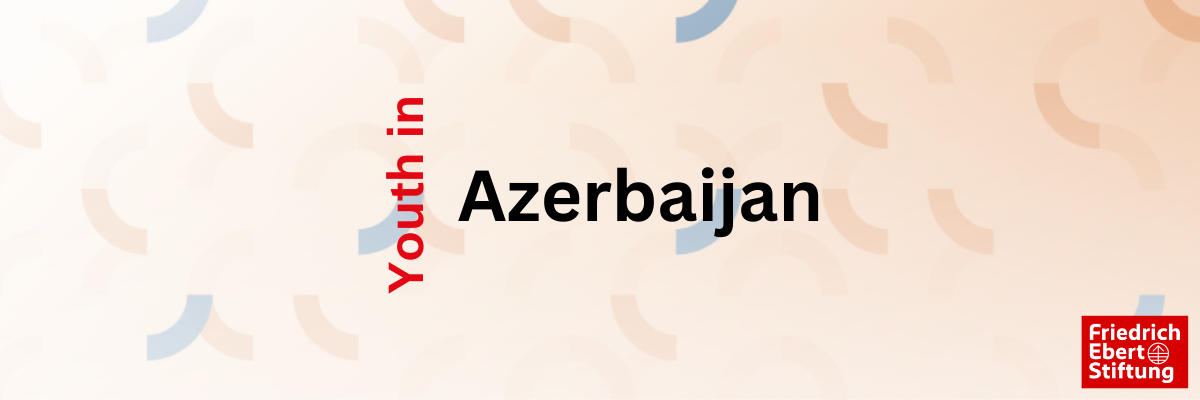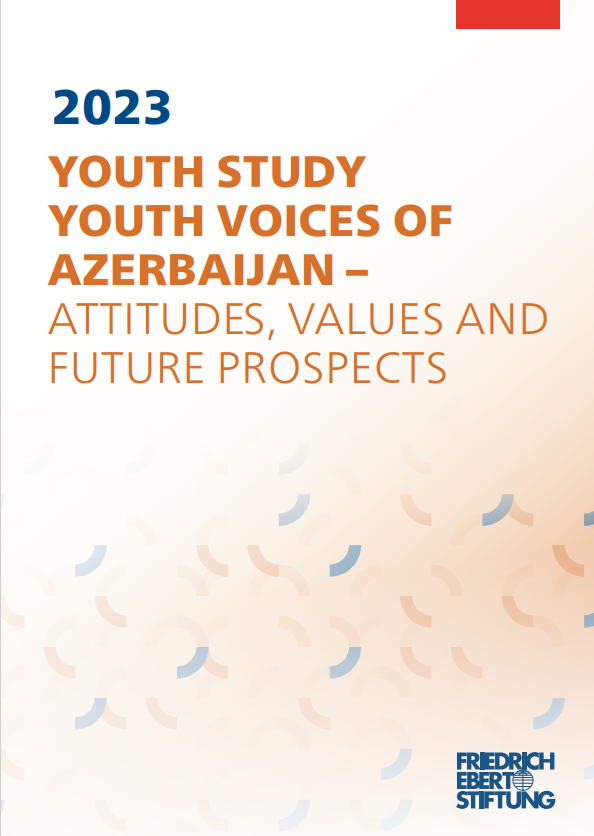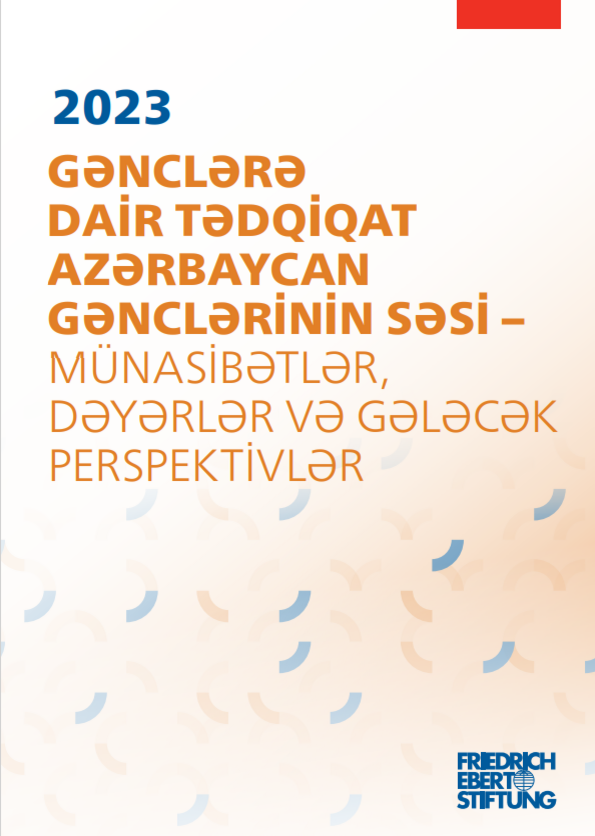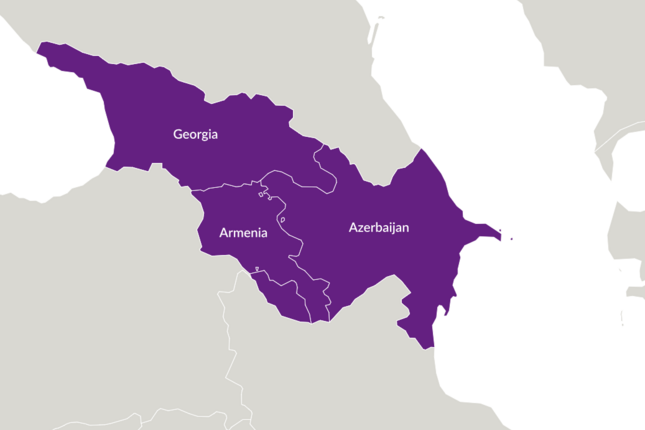Azerbaijani Youth View Turkey as Key Partner, Show Mixed Attitudes on Democracy
Data from the Friedrich Ebert Foundation's Azerbaijan Youth Study 2023 reveals how young Azerbaijanis aged 14-29 view democracy, international cooperation, and European identity. The survey of 1,605 youth shows nuanced attitudes toward democratic governance, overwhelming support for Turkish partnerships, and ambivalent perceptions of European values. These findings highlight the identity of Azerbaijan's post-Soviet generation, caught between regional alliances, historical conflicts, and aspirations for development in a resource-driven economy.
Democracy Support Among Azerbaijani Youth Varies by Gender and Location
When asked about their attitudes toward democracy as the best system for governing Azerbaijan, young Azerbaijanis showed generally positive views, though with certain demographic variations across financial situation, and urban-rural divides.
Overall, about 60% of young Azerbaijanis support or fully support democracy, but a significant 26.7% are "totally against" it—indicating a polarized landscape rather than lukewarm ambivalence.
Gender differences in democratic attitudes are almost non-existent, with females (47.99% support, 12.93% fully support) showing similar patterns to males (48.47% support, 14.88% fully support). The more unexpected finding comes from the urban-rural comparison, which contradicts conventional wisdom about progressive urban centers versus conservative countryside.
Rural youth demonstrate stronger democratic support (53.40% support, 15.05% fully support) compared to their urban counterparts (43.03% support, 12.86% fully support). Urban youth are more likely to be "totally against" democracy (30.48%) than rural youth (22.89%). This unexpected pattern may reflect urban disillusionment with existing democratic institutions or economic uncertainties in urban centers leading to skepticism about Western political models.
Economic circumstances create another layer of complexity in democratic attitudes. The data shows higher rates of opposition to democracy among those at higher end of the financial spectrum (with the important exclusion of those in the highest financial category). This suggests that relative affluence can foster democratic skepticism.
Young Azerbaijanis See Turkey as the Primary International Partner
When asked about which international partners would contribute most to Azerbaijan's economic growth, national security, and human rights protection, young Azerbaijanis showed an overwhelming preference for cooperation with Turkey. On the other hand, Armenia is viewed as the greatest threat to Azerbaijan's national values, security, statehood, and economic system.
The data reveals Turkey's central role in Azerbaijani youth's geopolitical worldview, with 86.44% of respondents believing Turkey contributes to Azerbaijan's economic growth and 90.29% seeing Turkey as supporting national security. These figures reflect the deeply entrenched "one nation, two states" principle that extends beyond political rhetoric into genuine public sentiment, reinforced by linguistic kinship, cultural ties, and Turkey's crucial military support during the 2020 Nagorno-Karabakh conflict.
Russia maintains significant relevance in economic matters (43.88%), underscoring the persistent economic interconnections of the post-Soviet space, though it trails far behind Turkey. The EU countries place third for economic contributions (35%), but their perceived role in security matters is minimal (11.09%), indicating young Azerbaijanis view European engagement primarily through an economic and developmental lens rather than as a security guarantee.
Armenia stands as the perceived adversary, with majority percentages identifying it as threatening Azerbaijan's statehood (51.46%), national values (51.72%), and national security (53.26%). These perceptions are rooted in the decades-long Nagorno-Karabakh conflict, territorial disputes, and the fresh memories of the 2020 war that realigned territorial control in the region.
The United States occupies a contradictory position in youth perceptions. While 23.84% recognize its economic contributions, a nearly identical 23.36% consider it a security threat, reflecting suspicions about American regional intentions, potential interference in domestic affairs, and the complicated politics of Section 907 of the Freedom Support Act, which restricted direct U.S. aid to Azerbaijan for many years.
Young Azerbaijanis Associate Europe with Democracy but View it as Culturally Distant
When asked about what they associate with Europe, young Azerbaijanis revealed a multifaceted perspective that combines admiration for European governance models with cultural apprehension and a sense of otherness.
The primary European association for young Azerbaijanis centers on "democracies and rule of law" (44.93%), followed by "cultural and scientific achievements" (39.74%). The perception of Europe as "the wealthiest and most prosperous region" (34.61%) completes the trio of leading positive associations, reflecting an aspirational view of European governance and development models.
However, this admiration exists alongside a profound sense of cultural disconnection, with over a third (35.72%) characterizing Europe as "an unfamiliar world with its own rules"—a perspective that speaks to Azerbaijan's historical development trajectory outside the European sphere. The perception of cultural alienation extends further, with nearly a quarter (24.29%) linking Europe with "moral decline and loss of traditional values"—a view that likely stems from Azerbaijan's more conservative social norms.
Interestingly, only 10.62% explicitly view European states as "hostile to Azerbaijan," suggesting that despite cultural and political differences, most young Azerbaijanis distinguish between value divergences and outright antagonism—a nuanced stance that can create openings for engagement despite the cultural divide.
Implications for Azerbaijan's Development Path
These insights into how Azerbaijan's rising generation conceptualizes governance, international relations, and cultural identity highlight key dynamics that will shape Azerbaijan's trajectory in the coming decades. The substantial—though far from unanimous—support for democracy suggests a society grappling with its governance model in a region dominated by authoritarian systems.
The overwhelming preference for Turkish partnership reveals a youth population oriented toward a pan-Turkic future rather than post-Soviet reintegration or European alignment. This creates a distinctive "third path" for Azerbaijan that aligns neither with Russia's Eurasian Economic Union nor the EU's Eastern Partnership framework, but instead looks toward deepening Turkic institutional connections through vehicles like the Organization of Turkic States. The paradoxical view of Europe—admired for its institutions yet viewed with cultural suspicion—suggests that Azerbaijan's European engagement will likely remain pragmatic and selective rather than identity-based.
As Azerbaijan leverages its energy resources and strategic position, these attitudes will shape how the country's youth engages with major powers, defines its national identity, and ultimately determines whether Azerbaijan evolves toward greater democratization or consolidates its current hybrid system with.
About the Data
This analysis draws from the Friedrich Ebert Foundation's "Youth Voices of Azerbaijan - Attitudes, Values and Future Prospects" (Shubladze et al. 2023), examining perspectives among Azerbaijani youth aged 14-29 based on a nationally representative survey of 1,605 respondents.



